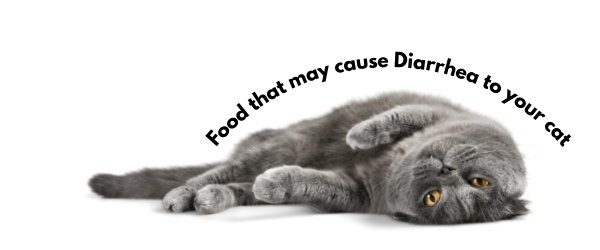As curious and playful creatures, cats have a knack for exploring their environment, which often includes investigating the food that humans consume. You may have found yourself wondering if it’s safe to share a slice of your apple with your feline friend.
While many fruits and vegetables can be nutritious and even beneficial for certain pets, not all are suitable for our furry companions.

In this blog post, we will delve into the question, “Can cats eat apples?” We’ll explore the nutritional benefits of apples, potential risks, and guidelines to ensure your cat’s safety while savoring a tasty treat. Whether you’re looking to diversify your cat’s diet or simply indulge their curiosity, understanding the facts will help you make informed choices for their health and happiness.
Can Cats Eat Apples?
Yes! It is very good to feed your cat with little amount of fresh fruits like apples and oranges because these are rich in vitamin C which helps the body fight off infections. However, if he eats more than what his digestive system can handle, then it might cause diarrhea.
Also, some people think that feeding their cats with raw meat could lead to salmonella poisoning. But this is only true when there’s no proper cooking process done on the food. In other words, cooked meals are safe for cats.

How Much Can I Feed My Cat Apple?
You need to know how many calories each portion contains before giving any kind of food to your pet. The calorie count depends on the size of the animal. For example, an adult male cat needs about 2200-2400 calories per day while females require around.
Some times it can also cause constipation as well. Check out food for constipation.
Why my cat cannot eat apple?
Today I found out why cats can’t have apples. Cats can’t have apples because apples contain a chemical called solanine. Solanine is a glycoalkaloidal steroid, meaning that it contains both glucose and alkaloids, and it has anticholinergic activity.
Solanine is a byproduct of the breakdown of naturally occurring glycoalkaloids in the leaves, flowers, and fruit of the plant.
Glycoalkaloids are toxic substances produced by plants as defense mechanisms against insects and animals who try to consume them. They also help protect the plant from being eaten itself. When humans ingest glycoalkaloids, they produce symptoms similar to those experienced after eating foods containing high levels of caffeine.
What Are Some Other Foods That Cause Diarrhea?

There are several types of foods that can cause diarrhea in pets:
1) Raw Meat – This includes beef, chicken, pork, lamb, fish, turkey, etc. These kinds of meats usually come straight from the slaughterhouse without going through any type of processing. Therefore, they still retain all bacteria present at the original source. As such, they’re considered unsafe for consumption.
2) Uncooked Eggs – Egg yolks contain cholesterol and fat. Both of these things increase intestinal motility. Thus, consuming eggs causes diarrhea.
3) Dairy Products – Milk products include milk, cheese, yogurt, ice cream, butter, sour cream, cottage cheese, etc. All dairy products contain lactose, a sugar molecule made up of galactose and glucose. Lactase enzymes break down lactose into its component sugars so that our bodies can absorb them.
4) Fruits & Vegetables – Many vegetables and fruits contain fiber. Fiber slows digestion and increases stool volume. Because of this, it makes sense that most fruits and veggies would be bad for dogs and cats.
5) Sugar Substitutes – Artificial sweeteners, artificial colors, flavors, preservatives, and emulsifiers are often used in processed foods. Although they taste great, they aren’t actually healthy for us. Instead, they create problems within our gastrointestinal tract.
6) Medications – Certain medications can cause diarrhea in pets. Examples include antihistamines, antibiotics, laxatives, diuretics, steroids, NSAIDs, chemotherapy drugs, and others.
7) Food Additives – There are certain chemicals added to commercial dog and cat food to improve flavor, texture, appearance, shelf life, etc.
Why does my cat like Apples?

Cats have a sensitive sense of smell and their natural prey is smaller animals. They are attracted to the smell of apples because they are fruity.
Cats have a keen sense of smell and their natural prey is small animals. They are attracted to the smell of apples because they are fruity.
Cats Love Apples! Why Do You Think So?

Cat’s love apples…and you know what else loves apples? The little critters inside your home. If you’ve ever had a pet before, then you already know how much fun it is to watch them play. But did you know there was more than just watching them play when it comes to their favorite treats?
In fact, some people think that feeding your kitty or puppy apples could do wonders for their health. And if you want to give your feline friend something special, here are five reasons why he’ll absolutely adore his daily dose of fresh apples.
Reason 1: It Helps Keep Them Healthy
Apples are loaded with antioxidants which fight off free radicals. Free radicals are harmful molecules that damage cells throughout the body. Antioxidants help keep those pesky free radicals under control by neutralizing them.
This means less cell damage and better overall health. In addition, apple peels also contain high levels of vitamin C, potassium, calcium, iron, magnesium, phosphorus, copper, manganese, zinc, niacin, thiamine, riboflavin, folate, pantothenic acid, biotin, and selenium. That’s quite an impressive list!
Reason 2: Apple Peels Are Good For Their Skin Too
Apple peels are packed full of nutrients that promote skin health. Vitamin A helps maintain strong nails and hair while B vitamins support good vision and energy production. Plus, eating apples regularly will prevent dryness on your furry friends’ paws.
Reason 3: Eating Apples Can Help Prevent Cancer
The phytochemicals found in apples may protect against cancer. These compounds work as antioxidants, helping to reduce inflammation and oxidative stress. Oxidative stress occurs when reactive oxygen species overwhelm antioxidant defenses.
ROS are produced during normal metabolism but excessive amounts can lead to DNA mutations and cellular dysfunction. Phytonutrients such as quercetin, catechins, epicatechins, gallocatechin-3-gallate, resveratrol, and other polyphenols act as powerful antioxidants. Some studies suggest these substances may even slow down tumor growth.
Reason 4: Apples May Improve Your Pet’s Digestive Health
The fiber content in apples makes them beneficial for digestion. Fiber aids in regular bowel movements and reduces constipation. Additionally, pectin, a type of soluble dietary fiber, has been shown to lower cholesterol levels.
Pectin binds bile acids so they don’t get reabsorbed into the bloodstream. As a result, this prevents buildup in the liver and lowers LDL cholesterol.
Read More:
- Why Does My Cat Bite me then Lick me?
- Why your cat stops covering its poop?
- Why Is My Bengal Cat Heavy?
Conclusion
We hope that your confusion is clear that felines can eat apples. Apples are also critical to keep their metabolism fit and healthy along with milk, meat, eggs, and other cat foods. Apples are easily digestible and prevent pets from many diseases. Have any question? Leave a Comment about your issue.

